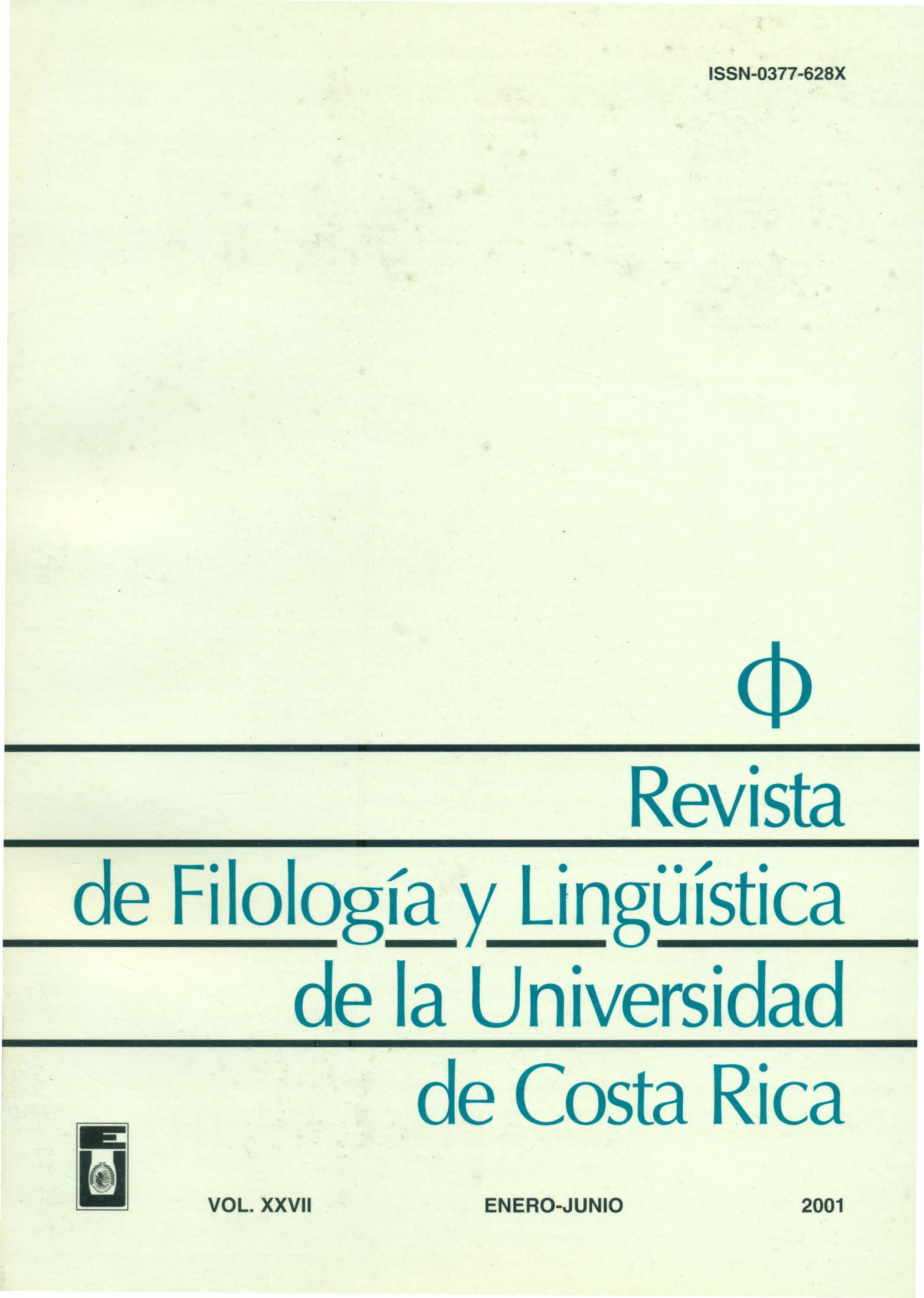Résumé
El presente artículo consta de dos partes: en la primera se caracteriza el concepto de universal lingüístico desde las perspectivas racionalista (generativismo chomskyano) y empirista (tipologismo greenbergiano) y se reseñan las distinciones: a) universales formales vs. sustantivos, b) universales implicativos vs. no implicativos, y e) universales absolutos vs. tendencias universales. En la segunda parte se señalan las críticas al enfoque racionalista y se propone una interrelación entre competencia, intención y función en aras de defender, desde la pespectiva funcionalista, la explicación de universales lingüísticos.
Références
Alonso-Cortés, Angel y Ana Pinto. 1993. Ejercicios de lingüística. Madrid: Editorial Complutense.
Bratman, Michael. 1990. "What is intention?". En Cohen et al.(eds.).
Cohen, Philip, Jerry Morgan & Martha Pollack. 1990. lntentions in communication. Cambridge: M.I.T. Press.
Chomsky, Noam. 1965. Aspects ofthe Theory of Syntax. Cambridge: M.I.T. Press.
a. Language and problems of knowledge. The Managua lectures. Cambridge: M.I.T.
b. "Linguistic Typology", En: Newmeyer, F. (ed.). Lingusitics: The Cambridge Survey, Vol. 1, Cambridge: Cambridge university Press.
Language Universals and Linguistic Typology. 2a. ed. Chicago: Chicago University Press.
Duranti, Alessandro and Charles Goodwin.1992. Rethinking Contexto Cambridge: Cambridge University Press.
Givón, Talrny. 1984. Syntax: a junctional-typological introduction. Vol 1.ArnsterdarnlPhiladelphia: John Benjamins Publishing Company.
Syntax: ajunctional-typological introduction. Vol II. ArnsterdarnlPhiladelphia: John Benjamins Publishing Company.
Greenberg, Joseph. 1957a. "Structure and function in language". En Greenberg, J. Essays in Linguistics. Chicago: The University of Chicago Press.
b. "Order of affixing: a study in general linguistics". En Greenberg, J. Essays in Linguistics. Chicago: The University of Chicago Press.
a. "Some Universals of grarnmar with particular reference to the order of meaningful elements" (presented at the Conference on Language Universals, NY, 1961). In Greenberg, J. (ed.) Universals of Language. 2nd. ed. Cambridge: M.I.T. Press.
b. "Memorandum conceming language universal s" (presented at the Conference on Language Universals, NY, 1961). En Greenberg, J. (ed.) Universals of Language. 2nd. ed. Cambridge: M.I.T. Press.
Habermas, Jurgen. 1970. "Toward a Theory of Cornmunicative Competence". Recent Sociology, 2: 114-48.
Hymes, Dell. 1972. "Models of interaction of language and sociallife". En Gumperz, J. y D. Hymens. The Ethnography of Communication. Blackwel.
Jakobson, Roman. 1966. "Implications of language universal s for lingusitics" (presented at the Conference on Language Universals, NY, 1961). En Greenberg, J. (ed.) Universals 01 Language. 2nd. ed. Cambridge: M.I.T. Press.
Jara, Caria V. 1993. "Adquisición de la lengua española: estudio de un caso". Memoria del V Congreso de Filologia, Lingüística y Literatura. San José: Publicaciones de la Universidad de Costa Rica.
Newmeyer, F. (ed.). 1990. Linguistics: The Cambridge Survey, Vol. 1, Cambridge: Cambridge University Press.
Payne, Thomas E. 1997. Describing morphosyntax: a guide for field linguistics. Cambridge: Cambridge University Press.

